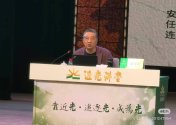China warns Mexico to ‘think twice’ before raising tariffs, threatens countermeasures
BEIJING — China’s Ministry of Commerce has warned Mexico of countermeasures as the country plans to hike tariffs on Asia-made cars to 50%.
We “hope Mexico will be extremely cautious, and think twice before acting,” the ministry said in a statement late Thursday, translated by CNBC.
“China and Mexico are mutually important trade partners,” the ministry said. “We are not willing to see both sides’ economic cooperation affected by this situation.”
Mexico’s Secretary of Economy Marcelo Ebrard told reporters Wednesday that the country planned to raise tariffs on vehicles coming from Asia, particularly China, to 50% from the current 20%. The increased duties still need Congressional approval, and the tariffs would take effect 30 days later, he said.
“China will take necessary measures ... to resolutely safeguard its legitimate rights and interests,” China’s statement read.
Faced with “U.S. abuse of tariffs,” countries should safeguard free trade, China said. “The coercion of others should never sacrifice third-party interests.”
Mexico’s planned China tariffs are part of a broader federal budget proposal that would affect $52 billion worth of the country’s imports, according to a report from The Wall Street Journal.
In the ongoing trade tensions with the U.S., China’s countermeasures have included restrictions on exports of minerals critical to the production of cars and other advanced technology. Chinese companies have come to dominate the supply chain for many of those minerals.
Sitting on the southern border of the U.S., Mexico benefits from the United States-Mexico-Canada Agreement (USMCA) for tariff-free trade among the countries. But USMCA, which took effect in 2020, requires a far greater portion of a vehicle to be made in the region than the North American Free Trade Agreement agreement it replaced.
Mexico’s auto industry is the country’s largest employer, Jorge Guajardo, Washington, D.C.-based partner at Dentons Global Advisors, previously told CNBC. He is a former ambassador of Mexico to China.
“At 50 percent, the tariffs are lower than the 60 percent tariffs Russia applies to Chinese cars,” Guajardo told CNBC in an email Friday. “I have yet to see China label the same accusations [of coercion] on Russia or Brazil, I assume that’s a tacit agreement that they understand there is no appetite in the world to absorb China’s excess capacity.” Brazil in July announced tariffs of 35% on electric-car imports.
Excess supply was a reason why global trade existed, a Chinese official told CNBC last year, adding that that if China was producing too many electric cars, other countries dominated in global exports of liquefied natural gas, agricultural products and high-end semiconductors.
From June 2022 to July 2024, more than 20 Chinese auto parts and manufacturers have announced over $7 billion in investments in Mexico, according to the Coalition for a Prosperous America, an advocacy group.
It’s unclear how many of the projects have been completed. Chinese electric car giant BYD
has notably not yet built a long-awaited factory in Mexico.
The central American country has been China’s top destination for car exports, according to China Passenger Car Association figures earlier this year.
“The thing that’s very important about Chinese autos is that where they’re taking market share, a lot of times, it’s not really from the Western brands. It’s really from the other Asian brands. I think that’s what we’ve seen in Mexico,” Eugene Hsiao, Macquarie Capital, head of China equity strategy, said on CNBC’s “The China Connection” earlier this week, ahead of Mexico’s latest tariff announcement.
But even with hints of a 25% increase in duties at the time, Hsiao said that he expected “the value proposition for a lot of these Chinese cars, I think, remains intact, even with some of these tariffs.”

